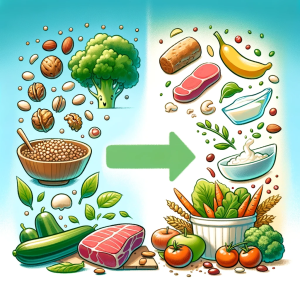
Demystifying Cancer Myths: A Canadian Perspective
In a recent study titled “Canadians’ knowledge of cancer risk factors and belief in cancer myths“, researchers delve into the understanding Canadians have about cancer risk factors and the prevalence of cancer myths. The study, conducted through an online survey, gathered responses from 734 Canadians, focusing on their ability to distinguish between established cancer risk factors and widely circulated myths.
A Mixed Bag of Awareness
The study’s results are a blend of reassurance and concern. On a positive note, a majority of participants demonstrated good knowledge of tobacco-related cancer risks, with over 90% correctly identifying them. However, when it came to other known risk factors, such as low vegetable and fruit intake, the recognition rates plummeted to as low as 23%.
A worrying aspect revealed by the study is the prevalence of cancer myths. High percentages of participants believed in the cancer-causing potential of additives (61%), stress (52%), and artificial sweeteners (49%). Interestingly, the study found active, open-minded thinking and a preference for effortful thinking were linked to better discernment between facts and myths.
The Role of Demographics and Thinking Styles
Demographic factors such as income, ethnicity, and age showed a significant influence on cancer risk factor awareness and myth acceptance. For instance, higher-income groups and those from denser population areas displayed better knowledge of cancer risk factors. This highlights the necessity for tailored public health messages that cater to diverse demographic segments.
The study also explored how thinking dispositions impact myth belief and risk factor identification. Those inclined towards analytical and open-minded thinking were less susceptible to myths, emphasizing the need for fostering critical thinking in health education.
Strategies for Better Awareness
For public health practitioners, these findings underscore the importance of targeted education and awareness campaigns. Emphasizing lesser-known risk factors like low physical activity and inadequate fruit and vegetable intake is crucial. Moreover, debunking prevalent myths should be a priority to ensure the public’s focus remains on scientifically established risk factors.
Creating campaigns that resonate with various demographic groups, especially those more susceptible to myths, is vital. Additionally, incorporating strategies to nurture analytical and open-minded thinking could enhance the effectiveness of these campaigns.
Moving Forward: Addressing Myths and Enhancing Knowledge
The study’s insights offer a roadmap for future health initiatives. It’s clear that while progress has been made in areas like tobacco-related cancer awareness, much work remains in educating the public about other risk factors and dispelling pervasive myths. The goal should be to create an informed populace that can make health decisions based on facts, not fiction.
The findings also call for a multi-faceted approach in public health messaging, one that imparts not only factual information but also encourages critical evaluation of the information people come across.
Conclusion
The study serves as a crucial reminder of the ongoing challenge in cancer education. It highlights the gaps in public awareness and the persistent influence of myths. For public health practitioners, this study is a valuable resource that can guide the development of more effective health promotion strategies, ensuring that the fight against cancer is based on knowledge, not misconceptions.
Unlock Your Public Health Potential – Subscribe Today!
Join the ranks of proactive change-makers with ‘This Week in Public Health.’ Elevate your understanding and engage directly with the latest in community health, innovative research, and advocacy. Every issue is more than just news – it’s a stepping stone to making a real difference. Subscribe for free now and be the change-maker in public health!



